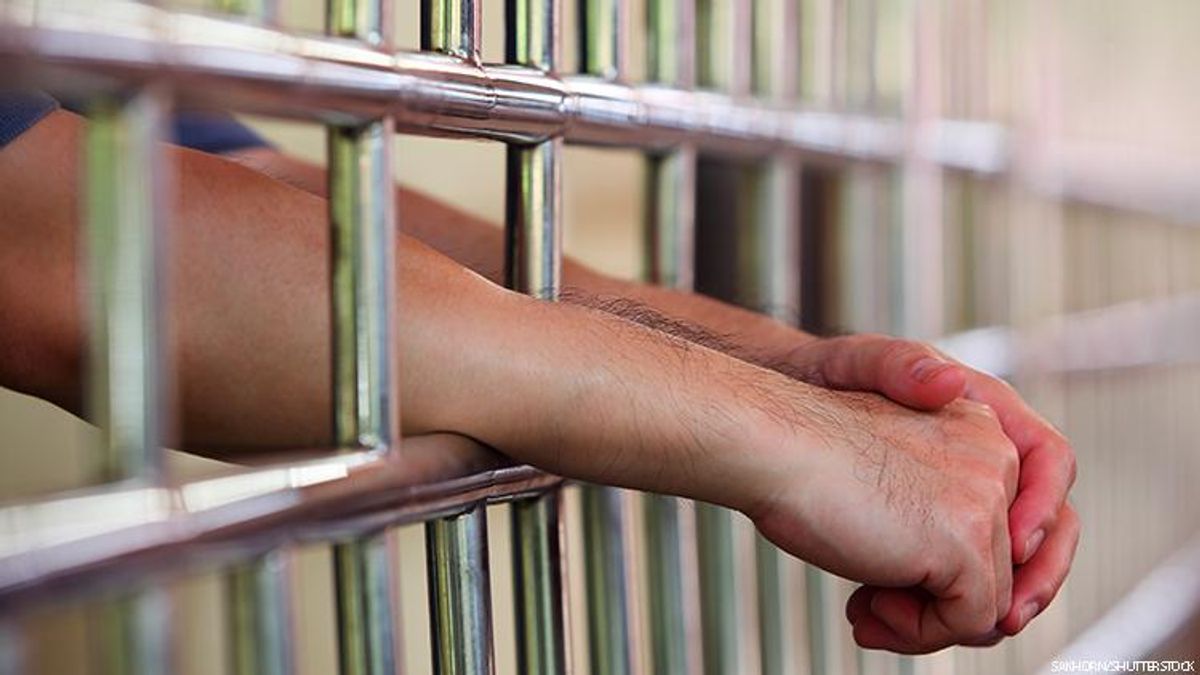I was born smiling. I love unicorns and drinking coffee, and I can be instantly cheered up when "It Takes Two" by Rob Base and DJ EZ Rock comes on. I am a Black mother and am a woman living with HIV in Florida. In that state, if I do not have proof that I disclosed my HIV status to my sexual partners, regardless of whether or not transmission occurs, I can be arrested, charged with a felony, and sentenced to up to 30 years. In all honesty, because of the outdated language in these statutes, even if I have proof, a judge may not accept it. That's just one way HIV criminalization statutes across the nation are problematic.
This February 28 marks the first year of HIV Is Not a Crime Awareness Day, a day when communities will mobilize with a collective voice to stand in solidarity to overcome HIV criminalization. In launching this day, I've had the privilege to collaborate with the Sero Project and the Elizabeth Taylor AIDS Foundation. They share in the unapologetic commitment to build momentum in equipping advocates locally and nationally to create strategies that shift mindsets and change these laws. We cannot end the epidemic of HIV unless these laws are reformed and ultimately repealed.
As a product of abstinence-only education, I was pregnant at 19, then diagnosed with HIV at 21; in 2003, I learned the hard way about stigma and discrimination. To quell my fears, I began speaking out about living with HIV in 2007 and have been a part of the decision-making tables like my local Ryan White planning council. I traveled to Washington, D.C., to speak with legislators about people living with HIV having access to care. I stand on the shoulders of so many people who have died from complications of HIV and have faced stigma, discrimination, shame, and fear. I am grounded in this work because of those who are no longer here, who ads to the collective power and voices of the marginalized and invisible.
The thing is, when policymakers voted for HIV criminalization laws to be enacted in Florida, it was 1986. I was 4 years old. People nationwide were afraid and called on the government for a solution, needing funding for research to identify treatments for HIV The answer to one issue ultimately led to problematic laws that have been enacted in various states, some more specific and harmful than others. Over time, treatments became available, Ryan White funding created access to care for people with HIV, and people began living longer fuller lives. As time passed, the laws that seemed practical in 1986 were no longer. There has been progress in fighting HIV, including once-a-day treatments, pre-exposure prophylaxis, and the fact that a person living with HIV on their antiretroviral treatment six months or longer (and reaching an undetectable level of the virus) cannot pass the virus on to their partner sexually. The latter development has brought communities vulnerable to HIV and people living with HIV beyond the shadows of stigma. This HIV Is Not a Crime Awareness Day and the partnership with the Elizabeth Taylor AIDS Foundation adds to that, combining resources and community to continue to change states's HIV-specific laws or health codes to remove penalties for people living with HIV. Iowa, Colorado, California, Michigan, Missouri, Nevada, Virginia, North Carolina, Illinois, and Washington are just the beginning of these changes. Incredible victories supported by organizations like those in the Health Not Prisons Collective have forced legislators to face their stigmatizing enforcement of laws.
I joined this movement in 2016; having lived with HIV for 13 years and having never heard of the laws in this way, I had to be a part of that change. I believe in amplifying racial justice, I believe in expanding advocacy networks, and I believe fully in the power of the people. I think it's essential to have awareness days like HIV Is Not a Crime Day, among all of our other HIV awareness days, to support and empower people living with HIV who are impacted by mass incarceration. The opportunity to tell the stories of survivors who were held in prisons by systemic racism, heteronormative violence, sexual violence, and stigma adds to the collective power in decriminalizing HIV. While we wait to change laws, people are still vulnerable to policymakers' bias, and this awareness day, along with the tools it will offer, helps people become activated in the movement and make clear that criminalization is never a solution to a health challenge. The movement can be the force that alters the response to health challenges by uniting against policing, prosecution, and imprisonment in public health crises. I think it's essential for the justice system to be informed by those impacted by outdated, unjust, and dehumanizing laws.
Join me and others this February 28 and declare that HIV Is Not a Crime and take more steps toward removing the residue of stigma sticking to the fibers of systemic oppression and violence. Join survivors of HIV criminalization by showing support in amplifying this discussion beyond the capitol buildings, outside of the coalition strategy meetings, and into spaces that allow for radical, critical, and meaningful change.
Kamaria Laffrey is program director for HIV policy reform with the Sero Project, offering strategic planning and community mobilization training to state leaders living with HIV to change their HIV criminalization laws.


















































































